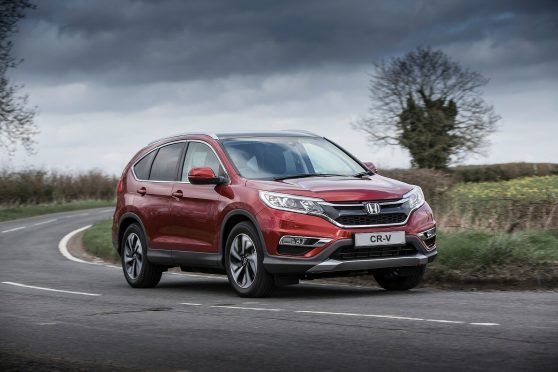The Honda CR-V has evolved, introducing a 157bhp 1.6-litre diesel engine to replace the old 2.2-litre unit, a nine-speed gearbox, city braking technology, a new infotainment setup and a bafflingly smart adaptive cruise control system. It’s a great all-round package.
By any measure, the Honda CR-V has enjoyed phenomenal success. The Japanese company has shifted over 750,000 of them in Europe alone and rather than that trend slowing down, sales are on the up. That’s going to be helped with an improved version that delivers more of what CR-V customers like.
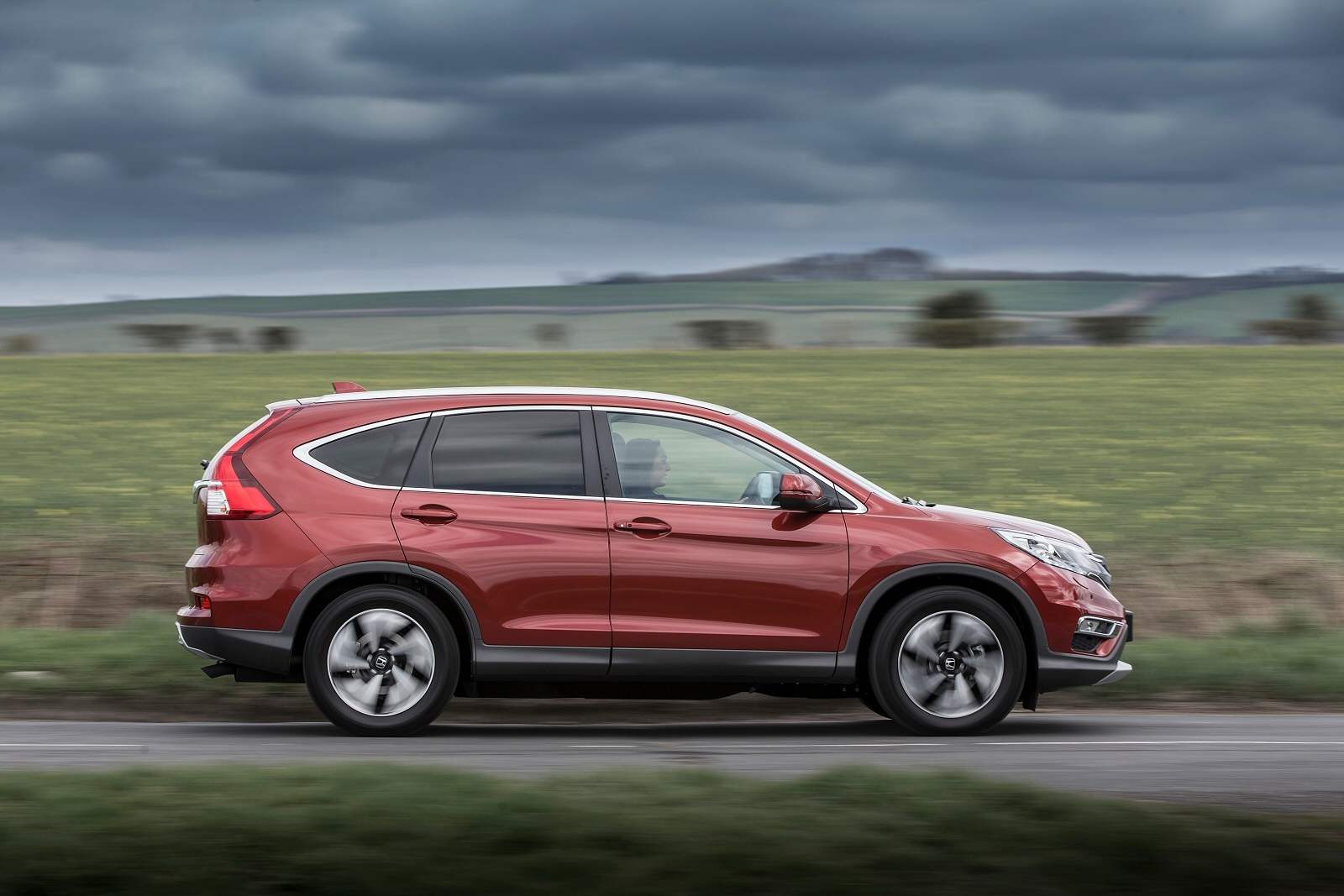
And what CR-V customers appear to like is safety, reliability, efficiency, practicality and lots of buttons to press.
A few years ago, buying a Honda CR-V was the signal that you’d almost given up on life. The styling was pretty bland, the engines unexceptional and it was just another one of those boring school-run cars. Then Honda started building in some design flair, the interiors went upmarket and the engines got a whole lot better.
These days, the CR-V is one of the more extrovert choices in its segment and the latest one hopes to convince you it’s the smartest too.
The big news with this CR-V is the fitment of a 157bhp 1.6-litre diesel engine, which replaces the old 147bhp 2.2-litre diesel, an engine that was looking a bit off the pace in terms of efficiency.
The 118bhp 1.6-litre diesel carries on much as before and there’s a 2.0-litre petrol engine offered that’s probably going to be largely ignored by UK buyers.
Specify the CR-V with a manual gearbox and you can also have it in front as well as four-wheel drive guise.
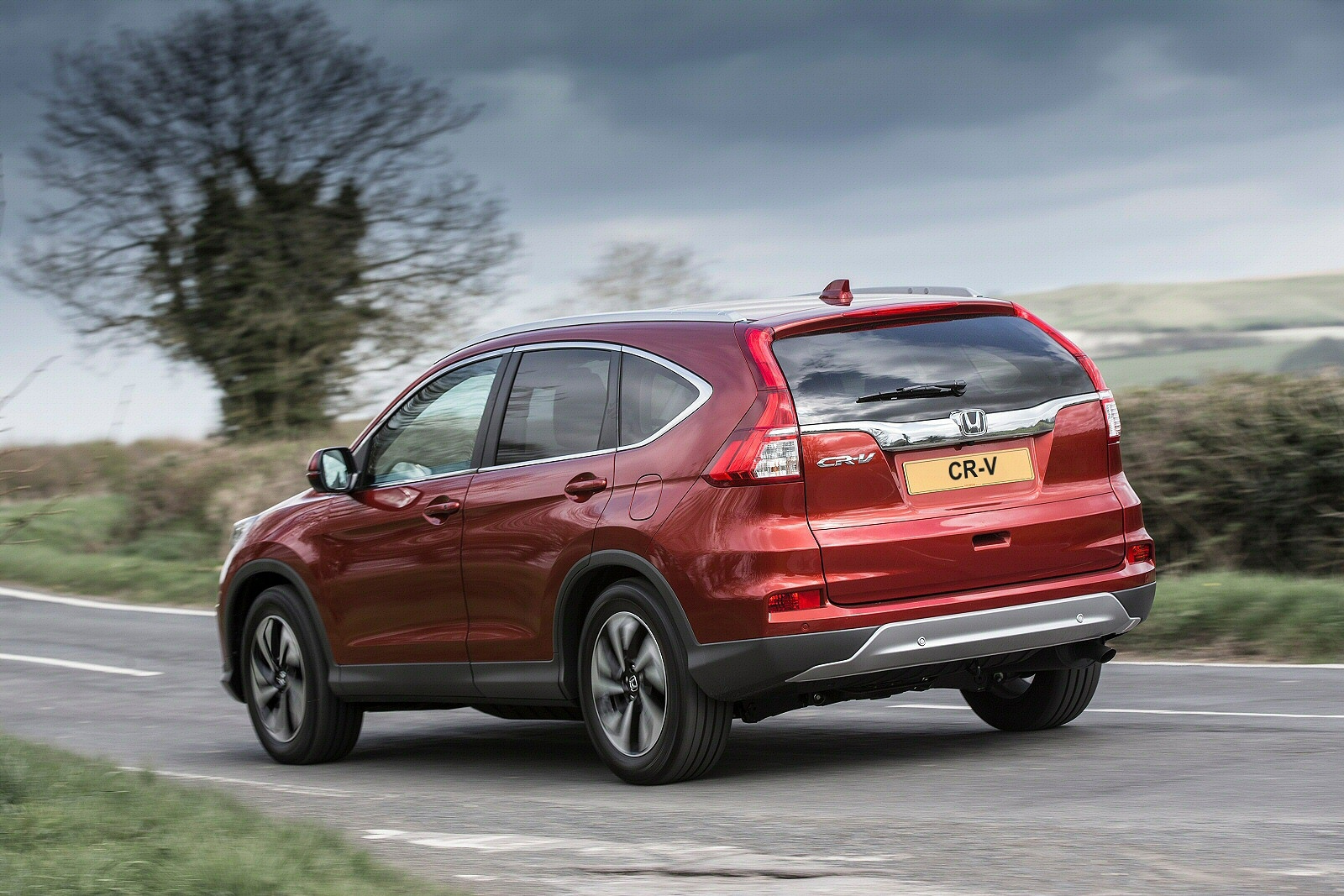
But you shouldn’t. That’s because Honda has replaced the old five-speed auto with a nine-speed automatic that then sends drive to all four wheels.
It’s an impressive piece of technology and does a great job plugging the diesel engine right into the meat of its 258lb/ft of torque available from just north of 2,000rpm.
The CR-V was never marketed as a particularly sporty drive and the updates to the car’s suspension and steering don’t aim for that goal. Instead, the steering has been revised to offer an 8% quicker ratio, while revised bushings, dampers and other suspension fettling aim to deliver a smoother ride. Refinement is something valued by CR-V owners and the latest car features added sound insulation material, thicker carpets and chunkier door seal rubbers.
The net result is a 6% reduction in cabin noise at speed.
The changes to the latest car could best be described as a facelift, although Honda has gone further than the usual grille, bumpers and lights.
Having said that, this latest CR-V does have a revised front grille, smarter bumpers and sleeker lights, the latter featuring LED daytime running lamps.
At the rear, the LED combination lamps have been restyled. There are revised 17 and 18-inch alloy wheels designs on offer as well.
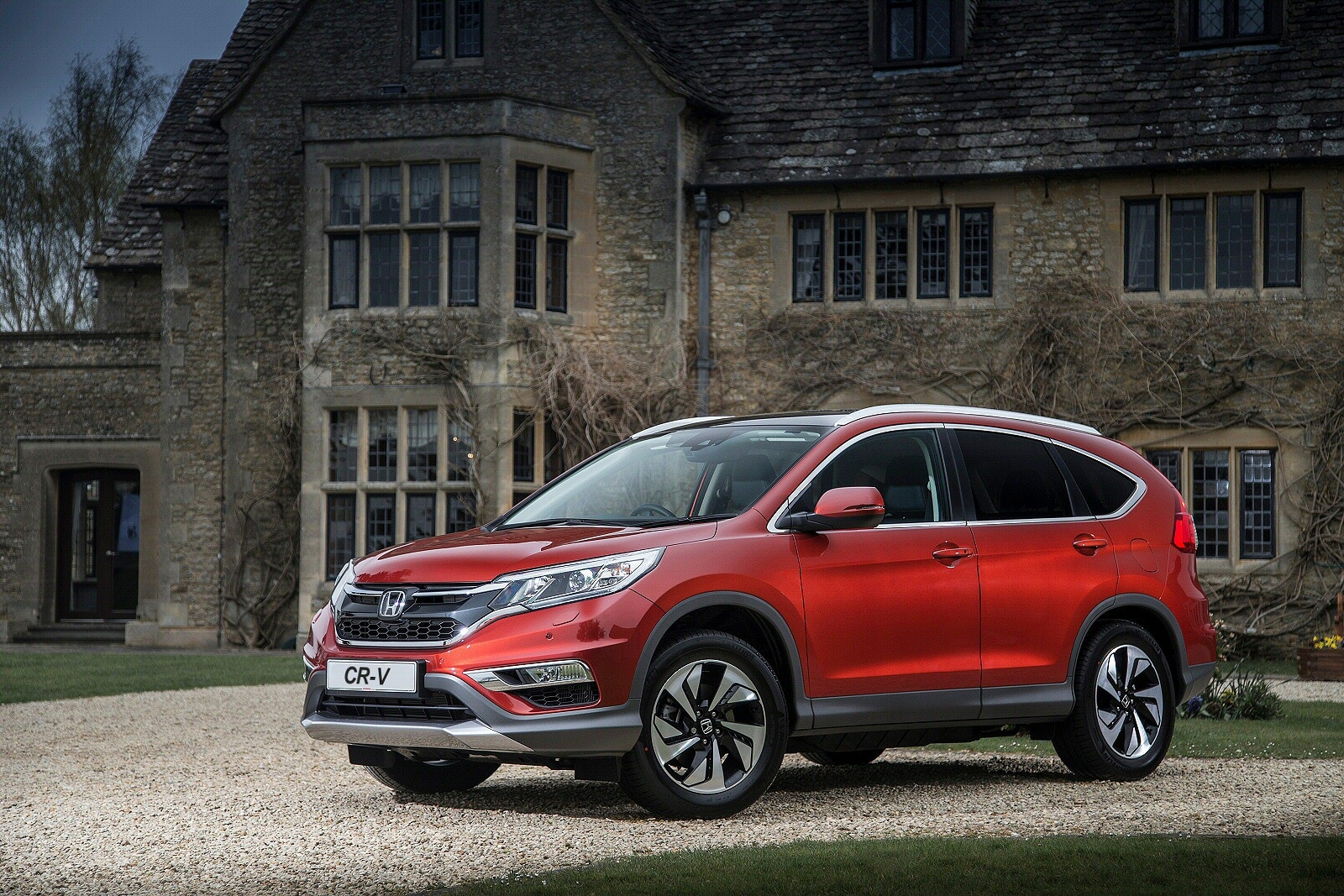
The cabin has been tweaked courtesy of a reshaped chrome-effect inlay running the width of the dashboard, and through the use of higher quality materials on key surfaces.
The dashboard has been redesigned to allow better visibility and access to the seven-inch touchscreen displaying the Honda Connect system.
The latest CR-V also features a one action fold down rear seat system, with the rear seats featuring a 60/40 split function.
With the seats in place you get an excellent 589-litres of luggage space which transforms to 1,648-litres with the seats folded.
The load length is up to 1,570mm, allowing the CR-V to easily swallow two adult mountain bikes (without having to remove the front wheels) or four sets of golf clubs.
You’ll need a budget starting from around the £22,500 for a 2.0 i-VTEC petrol model: that’s for 2WD. The 4WD petrol variants start from just over £25,500.
The 1.6 i-DTEC diesels start from around £23,500 in 118bhp form and come only with 2WD.
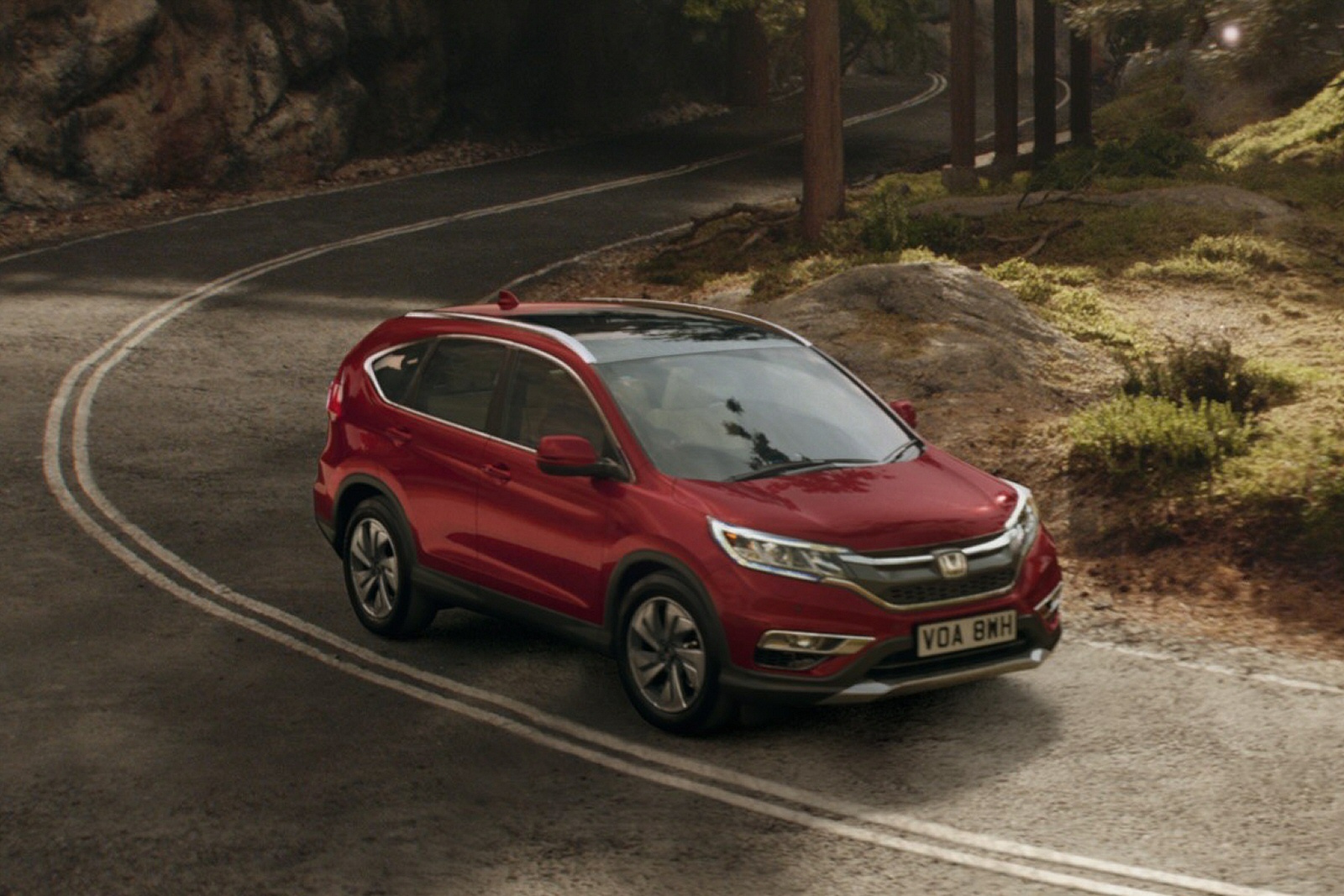
If you want a diesel 4WD variant, you’ll need this 1.6-litre i-DTEC unit with 157bhp – and you’ll require a budget starting from around £27,500.
Honda’s quite proud of its Honda Connect infotainment system, which is fitted to all but the entry level SE grade and it’s quite an installation.
Running on an Android 4.0.4 platform, it employs the familiar pinch, swipe and tap functionality of a smartphone.
It gives access to vehicle information, the rear-view parking camera, music and Bluetooth connectivity for smart phones.
Then there’s internet access, two pre-installed apps, Honda App Centre, optional Garmin satellite navigation, DAB/FM/AM and internet radio and, of course, the phone interface.
The adaptive cruise control system also features something genuinely new. Capable of predicting and automatically reacting to other vehicles cutting-in to the vehicle’s lane, based on extensive real-world research of typical European driving styles, Honda’s i-ACC uses a camera and a radar to sense the position of other vehicles on the road.
It then applies an algorithm to predict the likelihood of vehicles in neighbouring lanes cutting-in, enabling the equipped vehicle to react quickly, safely and comfortably.
The 157bhp diesel engine is unique to Europe and fares so much better than the 2.2-litre it replaces.
Helped by a two-stage turbo, it offers higher power output, lower fuel consumption and reduced CO2 emissions. Where the old 2.2-litre lump managed 42.8mpg on the combined cycle and emitted 174g/km, the 1.6-litre records 55.4mpg and emits just 134g/km, making it a far more cost-effective proposition for both business and private buyers.
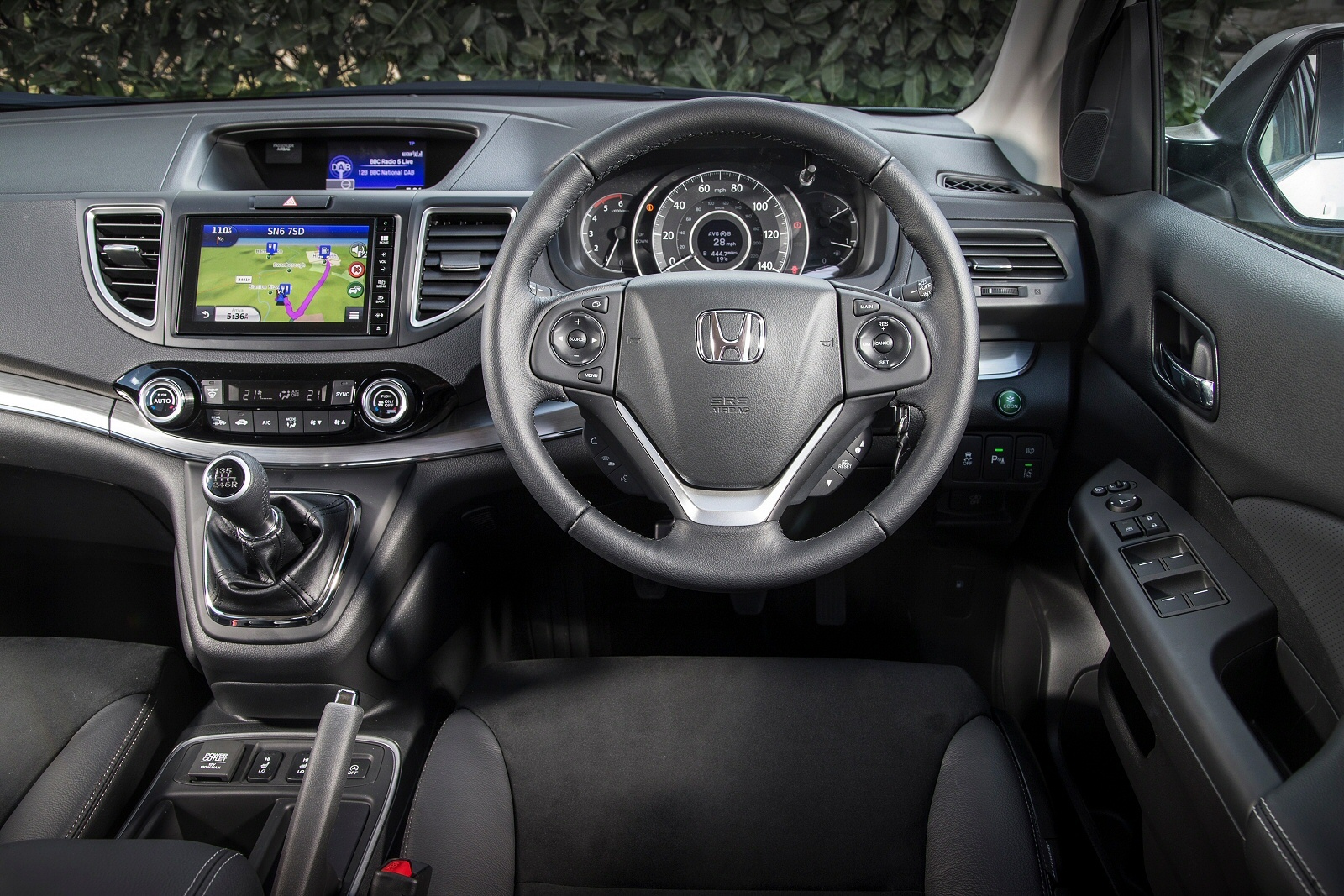
What’s more, the 1.6-litre diesel engine and transmission together weigh 65kg less than the 2.2-litre with its auto ‘box, bringing benefits to ride, handling and steering response, as well as efficiency.
Emissions are as low as 115g/km for a 1.6-litre 118bhp diesel that only drives its front wheels via a manual gearbox.
Residual values look set to stack up very well if the last CR-V was anything to go by.
Honda is a company that occasionally makes some rather strange decisions.
For years it was utterly half-hearted about diesel engines, thinking that variable valve timing of its petrol engines would win the argument.
It didn’t.
Only belatedly has Honda delivered really class-competitive diesels and in doing so, it has propelled the CR-V to the number one spot as the best-selling SUV in Europe.
Of course, it helps that it’s built in Swindon and has been designed to appeal to European tastes, but the powerplants now look pretty well sorted with the addition of the 157bhp 1.6-litre diesel with its nine-speed automatic transmission option.
Perhaps the only way that the CR-V range could be better rounded out would be through the addition of a top-drawer hybrid, one field that Honda has a stack of experience in.
As it stands, it’s going to take something extremely talented to dislodge this car from the top spot in the sales charts.
THE FACTS
Model: Honda CR-V
Price: From £25,500
Engine: 1.6-litre diesel producing 157bhp and 258lb/ft of torque
Transmission: Nine-speed automatic
Performance: 0-60mph in 7.6 seconds, top speed 124.9mph
Economy: 55.4 mpg
CO2 emissions: 134g/km
